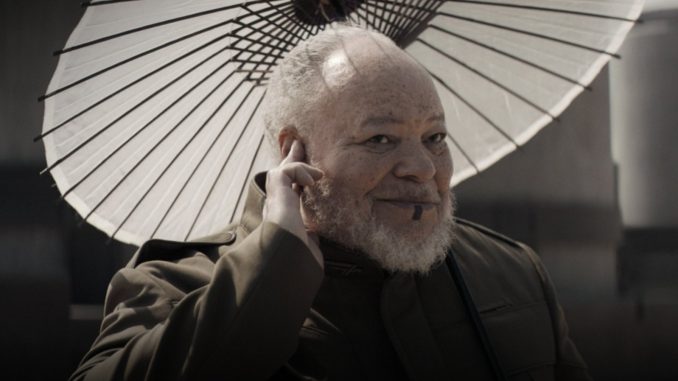
The story of Frank Herbert’s original “Dune” is ultra-dense. Though it had a relatively simple coming-of-age and rise-to-power plot involving Paul Atreides becoming a leader and a revolutionary, it is in the sociopolitical context of the vast worldbuilding that surrounds that story that the brilliance of “Dune” is found.
What makes the story and world of “Dune” special are the small details, like how the Emperor of the Known Universe holds very little real power and is only in charge because of his near-invincible army (or how a simple ecologist who slowly introduced desert animals and greenery to Arrakis became such a holy figure that he facilitated Paul’s rise as the leader of the Fremen). All this makes “Dune” a truly influential and beloved sci-fi classic.
This is to say, there was no way for any adaptation of the books to fully encompass everything Herbert covered — except maybe the rather faithful 2000 “Dune” TV mini-series. So, when it came time for Denis Villeneuve to bring “Dune” to life, he made some radical changes. Some of these were fantastic (like changing the toddler-killing-the-Baron scene), and others were quite questionable. Case in point, Villeneuve cut one of the most vital characters from the books in “Dune: Part Two” after having him barely do anything in “Part One.” I am, of course, referring to Thufir Hawat.
You remember Thufir, surely? As played by Stephen McKinley Henderson, Thufir Hawat is the guy with a mark on his bottom lip, eyes that roll up and go fully white, and that cute little parasol. In the first movie, he seemed to be just another trusted advisor to Duke Leto Atreides and one of Paul’s friends, but nothing extraordinary.
Except, that is but a fraction of Thufir’s role in the “Dune” book. First of all, you should know that Thufir is a Mentat, an order that arose after the Butlerian Jihad that destroyed all thinking machines. The Mentats — like the Bene Gesserit — serve as assessors for the great houses, but rather than provide councils or do witchcraft, they serve as accountants, strategists, and essentially living computers.
Why is Thufir important in the Dune book?
Thufir Hawat is already revered as one of the best minds in the universe; he’s a Mentat praised for his abilities as an advisor, warrior, and strategist. But his role in the story of “Dune” needs some context missing from the movies, and is still kind of obscure in the original book.
You see, in the “Dune” movies, the reason the Atreides are sent to Arrakis seems to be because Emperor Shaddam Corrino IV fears that Duke Leto Atreides will rival him politically. In truth, that’s only part of it. Specifically, the Emperor is afraid that Leto’s sheer charisma inspires such loyalty in his already extremely skilled soldiers that he is the only person who could challenge his true source of power in the “Dune” universe: the Sardaukar.
Thufir’s true skill is that he is the one person who figured out the secret of the Sardaukar. He determines that their supreme fighting skills, which cause the entire universe to fear the Emperor, come from the extremely harsh conditions of the Emperor’s prison planet Salusa Secundus. Not only that, but Thufir also deduced that there is only one other world with even harsher conditions, and therefore might have even more formidable warriors: Arrakis.
Knowing full well that the Emperor sending the Atreides clan to Arrakis was a trap meant to kill them all, Thufir’s plan was to use Duke Leto’s charisma to make the Fremen as loyal to him as his armies were. Unfortunately, they’re too late, and before they can even discover who the real leader of the Fremen is, Duke Leto is assassinated.
What happens to Thufir in Dune?
After the fall of House Atreides, Thufir is captured by the Harkonnens. Hellbent on vengeance against the house that killed Leto, and knowing full well that the Emperor orchestrated all of this after seeing the Atreides as a threat to the Sardaukar, Thufir moved to suggest his same plot to Baron Harkonnen. He lured the Baron to focus on Arrakis and suggested he make alliances with the Fremen in order to challenge the Sardaukar, selling it as the only way to safeguard the Harkonnens against a fate like the Atreides’ — but knowing full well that this would turn the Emperor against the Baron and his forces.
Along the way, he also secretly pits the Baron and his nephew Feyd-Rautha against each other, feeding Feyd-Rautha’s ambitions and cruelty to undermine his uncle. Unfortunately, in suggesting to Baron Harkonnen that they needed the Fremen, Thufir began to work against the new Fremen leader Muad’Dib. By the time he realized he was working against his beloved Duke’s son, Hawat killed himself with a poisoned needle meant for Paul.
Why does Villeneuve’s Dune universe hate Mentats so much?
According to Villeneuve, cutting Thufir from “Dune: Part Two” was one of the most painful choices he had to make, but he decided to do it because of the specific take he had for “Dune.” Villeneuve, you see, wanted to focus his adaptation on the Bene Gesserit, which meant (in his own words) “that Mentats are not as present as they should be, but it’s the nature of the adaptation.”
In cutting Thufir, Villeneuve’s “Dune” movies effectively erase the Mentats from their take on Herbert’s world. Dropping or changing certain characters is understandable, but to remove the Mentats entirely in favor of a Bene Gesserit-centric story is to erase a big part of what makes the fall of House Atraides such a tragedy. Thufir’s plan was going to work. Leto was already on the way to securing alliances with the Fremen, and he could have challenged the Emperor. They could have lived, if only they’d had more time.
Not only that, but in erasing the Mentats, Villeneuve’s “Dune” world is a bit less lived-in and mystical. The Mentats aren’t just a rival order to the Bene Gesserit, they are also part of the brilliance of Herbert’s sci-fi universe — a world where “thinking machines” have been replaced by humans. Now, the prequel series “Dune: Prophecy” is continuing to ignore the existence of Mentats as well, even in the background, which is a huge shame. With 10,000 years of story to cover, however, we can only hope “Prophecy” will rectify its mistake in the future.

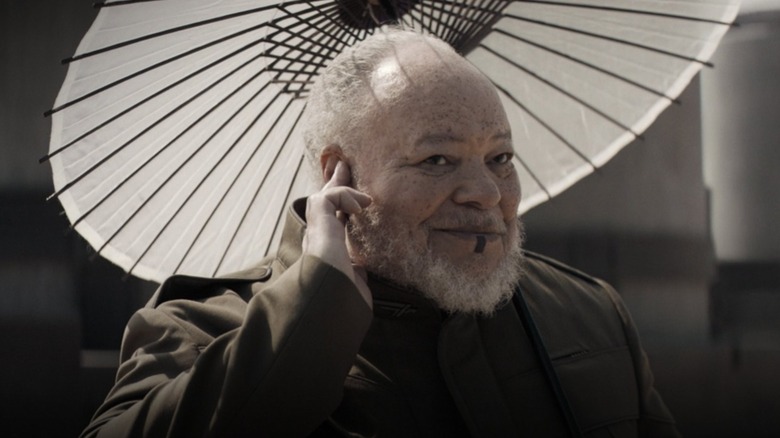
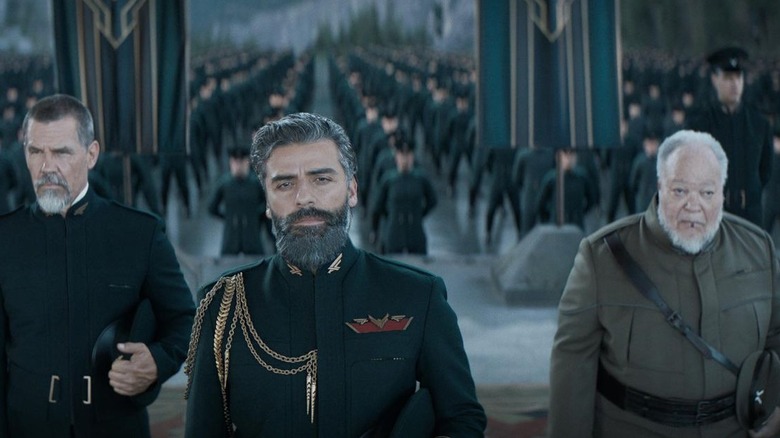
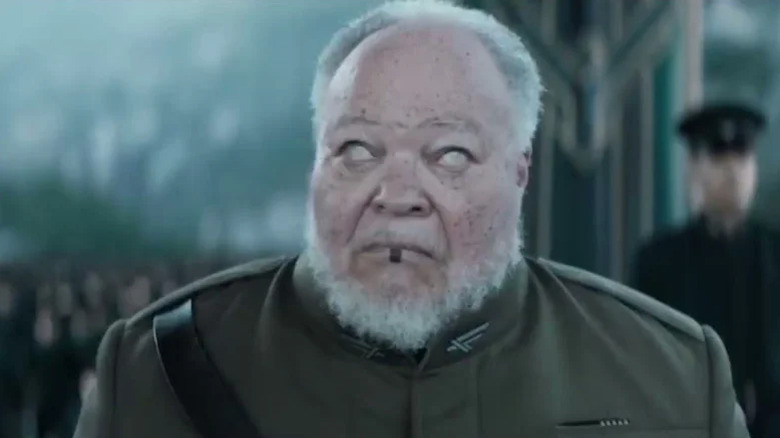
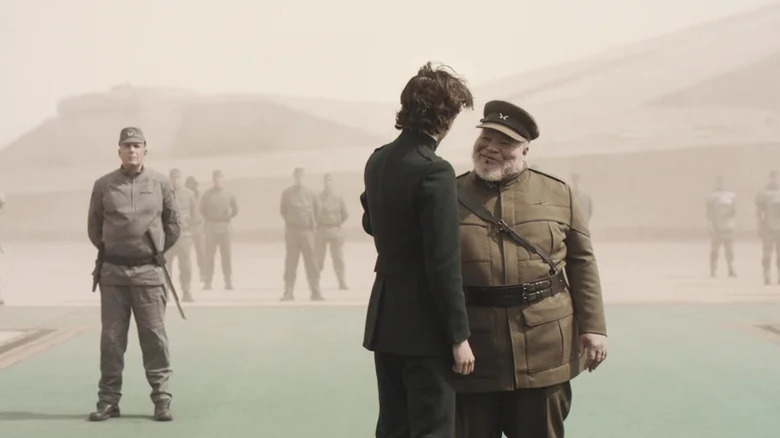
Leave a Reply